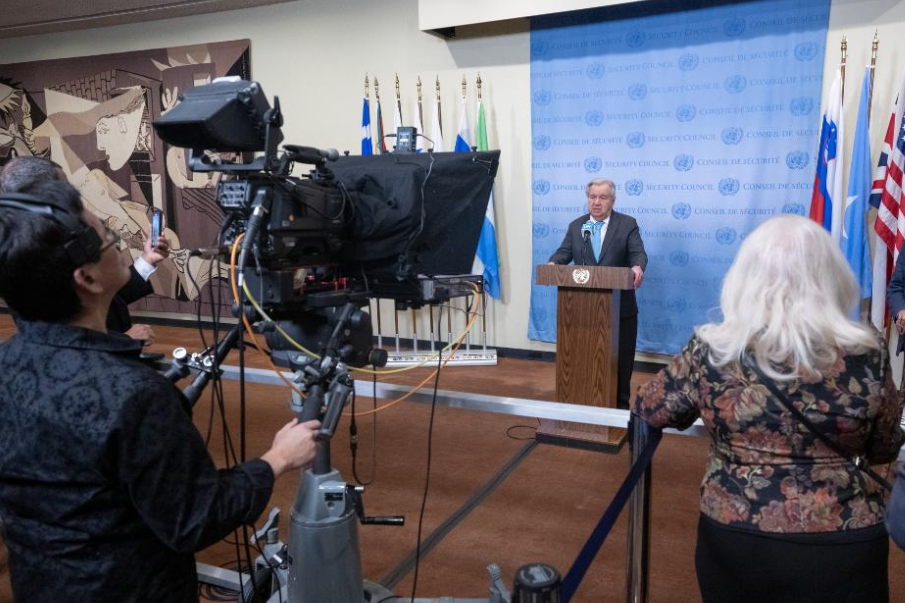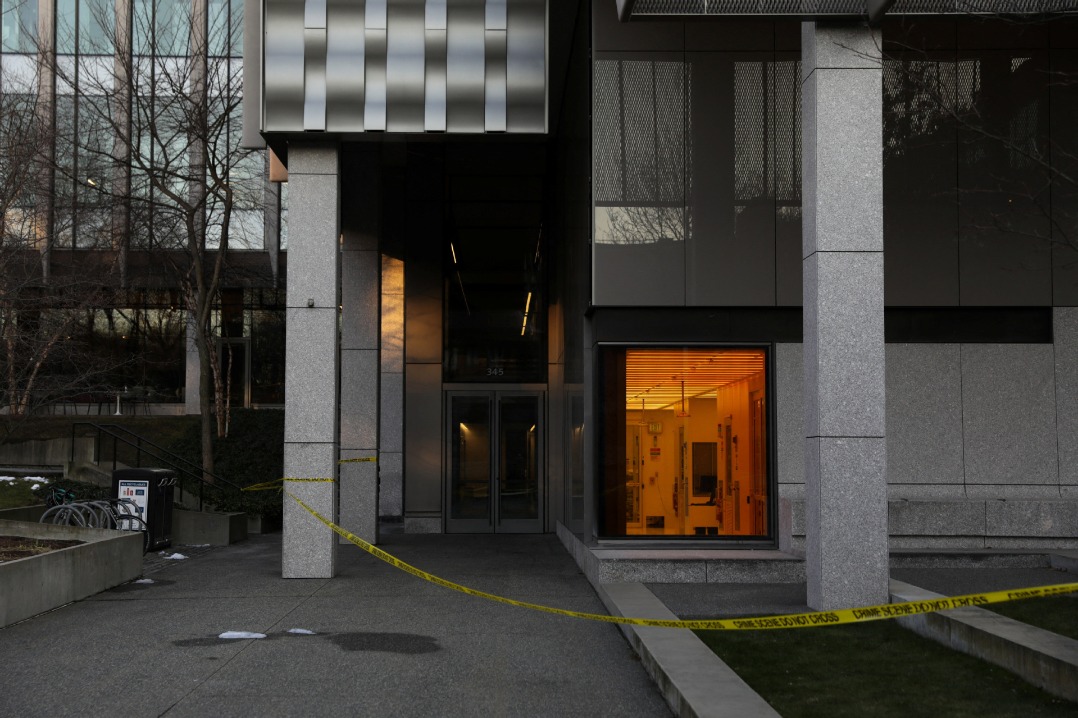Study: COVID-19 death toll in US may be much higher


The number of people who have died of COVID-19 in the US may be much higher than reported, according to a new study.
Scientists at the Institute for Health Metrics and Evaluation (IHME) at the University of Washington School of Medicine announced Thursday that more than 905,000 people may have died of COVID-19, which is 62 percent more than the 561,594 deaths currently reported by the US Centers for Disease Control and Prevention.
Worldwide, the IMHE said the number of COVID-19 fatalities is nearing 7 million, more than double the reported number of 3.24 million.
The model used by IHME researchers estimated death tolls by comparing anticipated deaths from all causes based on pre-pandemic trends with the actual number of all-caused deaths during the pandemic.
Then the study, which has not been peer reviewed, adjusted the "excess mortality" figure by removing deaths indirectly attributable to the pandemic as well as deaths averted by the pandemic.
Johns Hopkins University, whose Coronavirus Resource Center data are frequently cited in media reports, based its death toll on deaths reported as COVID-19-related and put the US toll at about 580,000.
IHME's data are more than 50 percent higher than the most commonly used tallies. Its global death toll of 6.9 million, is more than twice the Johns Hopkins number.
"As terrible as the COVID-19 pandemic appears, this analysis shows that the actual toll is significantly worse," Dr Chris Murray, IHME's director, said in a statement. "Understanding the true number of COVID-19 deaths not only helps us appreciate the magnitude of this global crisis, but also provides valuable information to policymakers developing response and recovery plans."
The IHME forecasts 949,000 COVID-related deaths in the US by September. By the end of the pandemic, total deaths will rival the number of people who died in the 1918 flu outbreak, it predicts.
The revised statistical model used by scientists at the IHME raised questions in the scientific community.
"I think that the overall message of this (that deaths have been substantially undercounted and in some places more than others) is likely sound, but the absolute numbers are less so for a lot of reasons," said William Hanage, an epidemiologist at Harvard University, in an email to National Public Radio.
"Their estimate of excess deaths is enormous and inconsistent with our research and others," said Dr Steven Woolf, who led a Virginia Commonwealth University (VCU) team study that examined excess mortality rates in the US through December. "There are a lot of assumptions and educated guesses built into their model."
The VCU team similarly found the number of excess deaths far exceeded the official COVID-19 death toll, but it disagreed that the gap could be attributed entirely to the coronavirus disease and not other causes.
Meanwhile, a CDC study suggests that the US could see a big drop in new coronavirus cases and deaths by July if the vaccination rate remains high, and people moderately adhere to preventive measures.
CDC Director Dr Rochelle Walensky said Wednesday that the modeling results give Americans a road map out of the pandemic, but coronavirus variants are a "wild card".
"We need to keep vaccinating people, but we all need to keep practicing certain prevention interventions to help us get to the predicted good outcomes," Walensky said during a White House briefing. "Although we are seeing progress in terms of decreased cases, hospitalizations and deaths, variants are a wild card that could reverse this progress that we have made and could set us back."
On Thursday, Pfizer and BioNTech announced that they will donate their COVID-19 vaccine to athletes and staff at the Olympic and Paralympic Games in Japan, which are scheduled to begin on July 23.
Delivery of initial doses is expected to begin at the end of May to ensure participants receive second doses ahead of arrivals in Tokyo.
"It is expected that a significant proportion of Games participants will have been vaccinated before arriving in Japan," the International Olympic Committee (IOC) said in a statement.
The announcement comes as a large majority of the Japanese public continues to oppose the Tokyo Games, which have already been delayed a year due to the coronavirus, out of health concerns.
Agencies contributed to this story.

































